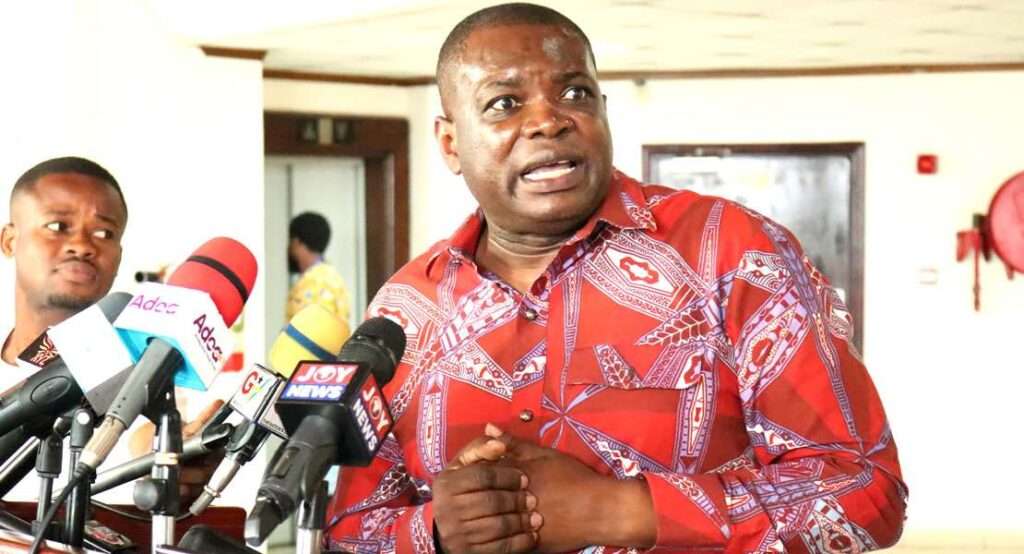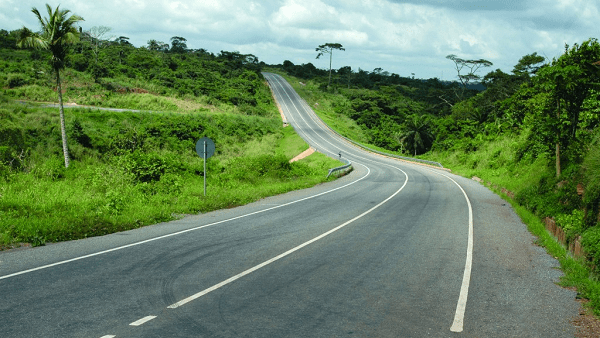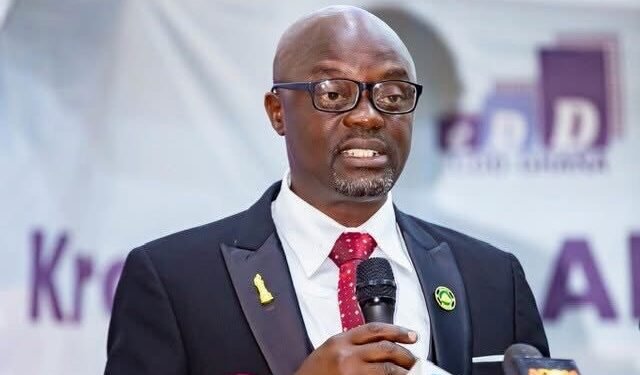In an effort to transform Ghana’s struggling road infrastructure, the government has outlined a comprehensive overhaul of the sector through the Big Push initiative under the leadership of the Minister for Roads and Highways, Hon. Kwame Governs Agbodza.
This strategy places strong emphasis on fiscal discipline, contract rationalization, and quality control in the national road development programme.
Speaking during the Government Accountability Series on July 30, 2025, the Roads Minister addressed the current state of road infrastructure and criticized the previous administration’s claims of progress.
According to him, after touring all 16 regions of Ghana with technical teams and agencies, it was clear that the much-publicized 10,800 kilometers of completed roads under the Akufo-Addo government could not be verified.
“Towards the run-up to the 2024 election, we decided that we would consult with the people of our country in every community and get from them exactly what their needs are. One of the main issues concerning Ghanaians today in all walks of life is the condition of the roads in their backyard.
“It doesn’t matter where you are. Even people in Accra and Kumasi have serious issues with their roads. It is based upon this that the President [John Mahama] made a firm commitment to make sure that we improve the road network in our country.”
Hon. Kwame Governs Agbodza
The Minister also lamented that it was difficult to find even 1,000 kilometers of roads in satisfactory condition in one region alone.
The review trip formed part of the ministry’s nationwide assessment to better understand the road sector’s challenges, with real-time updates provided to the public during the visits.

One of the most consistent complaints raised by residents during the tour, he noted, was the poor condition of roads in both rural and urban areas.
In response, the Ministry launched consultations with major stakeholders in the road sector, including contractors, engineers, regulators, and civil society groups.
This engagement process revealed a troubling backlog of unpaid contractors, stalled projects, and significant delays in project execution due to inefficient procurement systems and a lack of funding.
Contract Oversight To Improve Outcomes
According to the Hon. Governs Agbodza, part of the inherited problem stems from an “almost uncontrolled level of awarding of contracts” by the previous administration.
According to him, packages were regularly submitted to the ministry for quick approval, often without proper financial programming.
He stressed that going forward, his office would only approve road construction projects that are fully planned and funded through the national budget.

“We will only go ahead with projects that have been programmed and budgeted for,” he affirmed, urging stakeholders to adjust their expectations in line with the new, more disciplined approach.
Another major concern is technical oversight. With more than 1,000 projects under implementation at any given time, the Ministry is grappling with a shortage of qualified supervisors to ensure quality assurance across all sites.
This, the Minister believes, is partly responsible for substandard works—such as surface dressing projects that degrade within six months due to poor monitoring, rather than lack of technical knowledge.
Big Push Reforms Target Road Cost Efficiency
At the heart of the road sector reforms is the Big Push, a flagship policy in the ruling party’s 2024 manifesto.
Unlike previous approaches that allowed contractors to propose and cost projects under design-and-build frameworks, the new system mandates that feasibility studies, designs, and cost estimates be done internally by public agencies before any contractor is engaged.
“And one of the things we identified as well was that the regime of awarding projects on a so-called design and build also created an opportunity for inefficiencies and cost overruns, and projects that are not delivering value for money.
“So under the leadership of President Mahama, he directed that all big push projects should receive proper attention in terms of doing the studies, making sure that we do the designs and everything ourselves, and even come up with the cost.”
Hon. Kwame Governs Agbodza
This shift, the Minister explained, aims to minimize cost inflation, eliminate inefficiencies, and ensure that every cedi spent delivers real value.

By placing project design and pricing firmly in the hands of government engineers and planners, the Big Push is intended to prevent past instances where inflated contracts led to budget overruns and abandoned projects.
In his address, the Minister recalled that in past administrations, the mere announcement of an infrastructure programme would trigger a stampede of interested parties seeking to cash in on contracts. But under Mahama’s leadership, he said, that pattern will no longer be tolerated.
He added that all Big Push projects will undergo rigorous preparation, with professional oversight at every stage—from design through to cost generation and contract execution.
This, he emphasized, is part of the broader effort to reset the entire road infrastructure strategy in Ghana.
This reset is not only focused on new roads. The Ministry is also targeting the completion of stalled projects, prioritizing areas that have already seen some work and are closer to completion.
In parallel, the government is strengthening its contractor vetting process to ensure only firms with the capacity and track record to deliver will be selected.
With public expectations high and infrastructure at the center of development conversations, the Ministry appears committed to ensuring that the road sector becomes more transparent, efficient, and accountable.
The overarching goal is clear: rebuild public confidence in the state’s ability to deliver roads that are both durable and economically justifiable.























